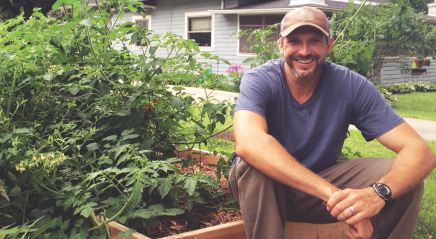Lectionary for Nov. 19, 2023
25th Sunday after Pentecost
Zephaniah 1:7, 12-18; Psalm 90:1-8, 12;
1 Thessalonians 5:1-11; Matthew 25:14-30
Do you ever worry about wasting your potential? I do all the time. I try to do a good job at the synod office, raising my kids, being a partner to my spouse, and writing these reflections and other projects. But inevitably I drop some of the many balls that I try to juggle faithfully. I think grace abounds for that. But sometimes, do you ever feel like there’s just too much going on?
We are meant for sabbath rest and for wholeness in rest. We aren’t the sum total of what we do in the world. Instead, we are creatures, lovingly fashioned by God who loves us before we can do anything to seek to earn that love. At the same time, we are called to produce much fruit for the kingdom of heaven through our abiding with Jesus. This week, we read Scripture that encourages us to produce fruit, not out of a place of desperation or by trying to earn salvation but as a response to who God is and what God has done for us.
In Zephaniah, one of my favorite books of the Bible, the prophet speaks of the coming Day of the Lord. Like several other prophets, including Amos from last week’s lectionary, Zephaniah seeks to upend the popular notion of the Day of the Lord as a time of celebration and vindication for God’s people. Instead, it will be a time of punishment for those who choose to work against or inhibit God’s justice.
Of particular concern for Zephaniah are people who say in their hearts that God neither performs good nor evil. According to this theology, God exists but does little else. Therefore, people don’t have to concern themselves with God’s mission in the world and can instead focus on building up for themselves wealth in the form of house, vineyards and treasure (1:13). In short, they wasted their potential to love and serve God.
But God is active and turns the table on listless humans. The Hebrew idiom in Zephaniah 1:12 is a little tricky to translate, but God—through the prophet—accuses people of something like congealing in their dregs (sometimes euphemistically translated as “become stagnant in spirit”). Imagine unfiltered wine in which yeast, any leftover secondary sweetening agent and grape skins sit at the bottom of a vast vat of wine. As the wine is poured off and ladled out, what sits at the bottom gets slimy and starts to putrefy. This is what God sees in the hearts of the people who only live for themselves, wasting their potential to love God and neighbor.
It seems that Jesus is telling a parable about those who, like the people Zephaniah prophesied against, have a bad theology that inhibits them from serving God with their whole selves.
In the Gospel reading, Jesus tells of a manager who leaves on a long journey and entrusts three servants with differing amounts of wealth according to their power or strength. I usually blow right past that phrase, but this year the master’s kindness sticks out to me. He doesn’t entrust five talents to the least prepared servant, overburdening him with unrealistic expectations. On the other hand, he recognizes the abilities of his capable servants and provides them with opportunities to exercise their gifts. When the servants meet the master’s expectations, he congratulates and compliments them. They aren’t dismissed back to their normal duties but are welcomed into the joy of their master and entrusted with great things. The master truly sees the potential of his servants and is overjoyed when they live up to it.
One servant, however, decides to prevent the master from seeing any gains. Instead of using his talent to make a profit or put it on deposit with bankers, the servant engages in the laborious task of digging a hole to bury it. Depending on which kind of talent is in view here, we’re talking about a hunk of metal between 57 and 200 pounds and probably larger than a cubic foot. Burying and digging up this one talent is much more physical work than buying and selling according to its value.
The single-talent servant bases his refusal to earn a profit on his view of the master as a dried up, hardened man who saw unfair benefits from the actions of others. Yet a master who knows the potential of his workers and welcomes these faithful servants into his own joy doesn’t sound like a dried up, hardened piece of leather but someone who notices others and shares. It seems that Jesus is telling a parable about those who, like the people Zephaniah prophesied against, have a bad theology that inhibits them from serving God with their whole selves.
God isn’t a taskmaster with a spreadsheet, checking off whether we do every right thing or not. While we were dead in sin and could not save ourselves, God sent Jesus to rescue us from sin and death. God is a God of grace and mercy. And God would like us to share the love that we first receive with God and with our neighbors. We do this not by congealing into a disgusting mass or by burying the talents that God has specifically and carefully given us, refusing to use them to benefit anyone. Instead, we simply go about our days looking for opportunities to love others as we have been loved.









